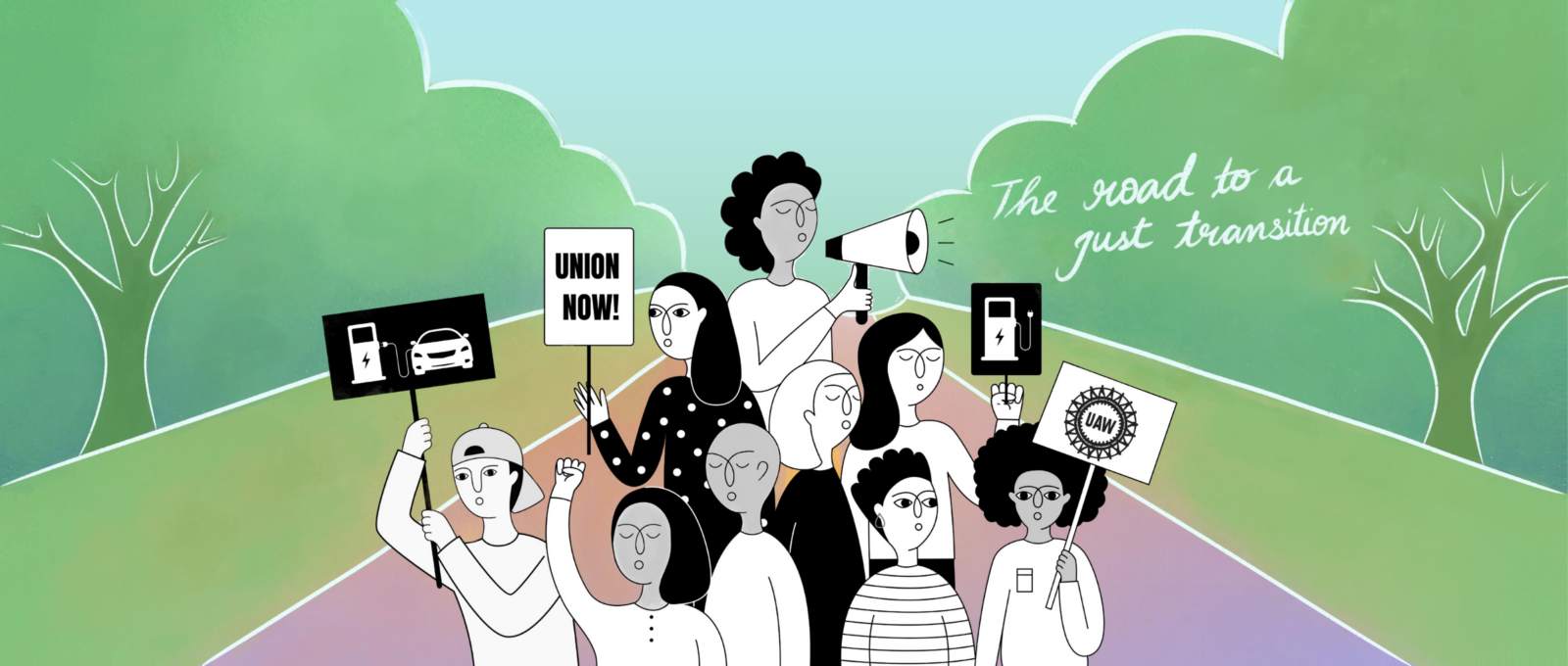The automotive industry employs millions of Americans and the fast-growing battery industry will soon employ hundreds of thousands. Whether these industries create quality jobs or if they participate in the race-to-the-bottom being driven by low road employers will determine to a large degree how much the public supports policies to accelerate the green transition.
In theory, creating quality jobs in these industries should be simple. Automotive and battery assembly are highly mechanized and automated industries, in which labor costs represent a small fraction of the overall costs when compared to materials and equipment. Companies can therefore raise wages and staffing levels without impacting prices too significantly.
But the electric vehicle and battery industries are currently dominated by low-road employers like Panasonic and Tesla. These companies maintain notoriously dangerous working conditions and their low wages and poor benefits drive down standards throughout the entire sector. Their factories are also some of the largest polluters in the green economy. Low road employers like this exacerbate a well-documented workforce shortage in emerging, green industries that require a highly-skilled workforce.
The United Auto Workers (UAW) union is leading the charge to correct these problems via its partnership with Sparkz, Inc., a next-generation battery maker opening a facility in Rancho Cordova, California. UAW and Sparkz have reached a card check neutrality agreement, meaning that Sparkz has committed to letting its future workforce form a union via the card check process instead of an onerous National Labor Relations Board election. The organizations will also partner to create the nation’s first battery apprenticeship program as part of a workforce development program. Building a high-road alternative to existing battery and EV companies will empower workers to improve their working conditions throughout the entire sector.
By forming a union and building a worker-centered training program, Sparkz workers will be on the forefront of the green transition. They will also be following the lead of unionized UAW workers at Ultium Cells in Ohio, which is currently the only unionized battery factory in the United States. As battery workers across the country seek union representation, the story of the Sparkz workers will be powerful. Workers can build on this example and ensure that sustainable new technologies create sustainable communities nationwide.
